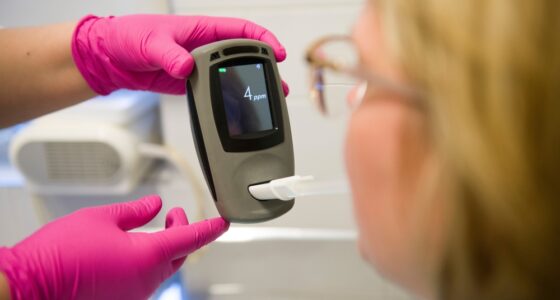Early diagnosis makes a significant difference in malignant mesothelioma’s outcome and options, but it rarely happens because the cancer’s symptoms don’t appear until its fatal tumors are large and advanced. This week, researchers at a public research university in Sheffield, England, in the United Kingdom, reported developing a breath “fingerprint” that could make a real difference in early detection of the rare asbestos-related disease, as well as other inflammation-linked cancers.

Mesothelioma Breath Test Could Revolutionize Diagnosis
According to researchers from Sheffield Hallam University’s School of Biosciences and Chemistry, funding by the charity Cancer Research UK has supported the development of a breath test that identifies the specific molecular signatures of malignant mesothelioma. If the test proves accurate, it would be an invaluable tool for monitoring the health of those at risk of the disease.
Malignant mesothelioma has been well established as a significant risk for anyone exposed to asbestos, especially those who had consistent occupational exposure to the carcinogenic material. Though asbestos-related diseases are a global problem, the United Kingdom ranks among the countries with the highest incidence of the disease. Speaking of the disease’s impact, Dr. Catherine Elliott, director of research and partnerships at Cancer Research UK, said, “Sadly, every year around 2,300 people are diagnosed with mesothelioma in England.”
Breath Test for Mesothelioma Would Offer a Non-Invasive Tool for Early Diagnosis
Currently, people at risk for mesothelioma have few options for early diagnosis: They can undergo health monitoring that includes undergoing diagnostic scans, but even those tests only reveal the tumors when they are relatively advanced. The introduction of a non-invasive breath test would represent a sea change. Speaking of the research, Dr Sarah Haywood-Small, Associate Head of School in Biosciences and Chemistry at Sheffield Hallam University, said, “The human breath contains valuable biological information—offering a window into our body’s metabolism. By learning to read these signals, we can detect diseases earlier, monitor conditions more accurately, and potentially save lives through more timely interventions.
She continued, “By understanding the relationship between breath compounds and cancer metabolism, we are working toward a future where cancer detection could be as simple as breathing into a device, offering a non-invasive and early diagnostic tool.” She concluded, “The results from this study present an encouraging step forward in how we detect and monitor mesothelioma and other asbestos-related diseases. While more research is needed, these initial findings suggest we’re on track to develop a more effective diagnostic approach.”
If you or someone you love is at risk for malignant mesothelioma, this research offers real hope for a better outcome. If you’ve been diagnosed with mesothelioma or any other asbestos-related disease, contact the Patient Advocates at Mesothelioma.net at 1-800-6922-8608 to learn more.
